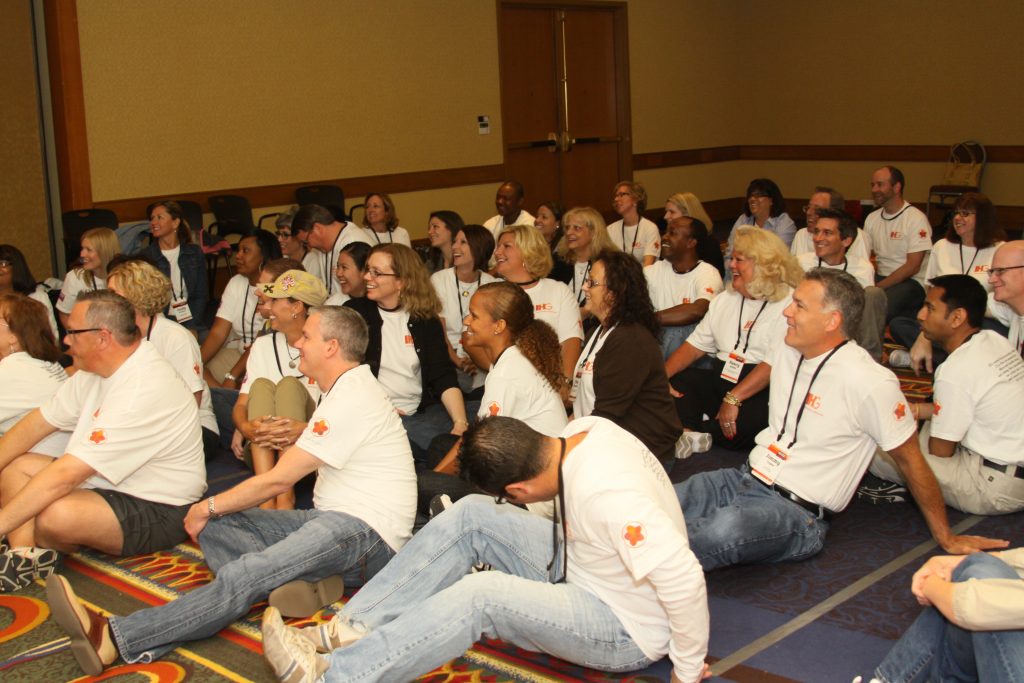The team building debrief is a source of some debate within the professional team building community. Is an event truly team building or can it be effective without a debrief component? We’d love to hear your thoughts on this below!
Frankly, we wrestle with this issue. Most of our clients do not request a team building debrief. A debrief is the time where a facilitator guides participants through a discussion about the dynamics of the activity. This typically takes place at the end of a team building activity, immediately following the event.

Why are you having the event in the first place?
With three basic objectives for hosting any type of meeting or event – Learning, Networking and Motivation, we see that the vast number of our groups are focused on the networking and motivation within the team building portion of their agenda. And at the end of a rousing bike build or intense competition, a debrief feels out of place and somewhat intrusive. Who wants to turn to their neighbor after a scavenger hunt and talk about what they learned?

The learning elements are all there! True cooperation and communication lessons are cooked into the experience. Conflict resolution, leadership and problem solving skills are there and ripe for the picking. But is it heavy handed to tease this learning out in the afterglow of fun?
Not to debrief
Most participants would say yes, based on our experience. It may be more appropriate to include this type of discussion in the next session or even the next day, depending on the timing. Based on the overall objectives of the meeting, the flow may feel more natural and conducive to productive discussion.
Is it okay to skip it all together? Sure, as long as you are still meeting the objectives of your meeting and event. Is the intent of the event to get people to interact and to experience one another in a playful setting? If so, discussing it after isn’t always needed.
To Debrief
If the purpose of the team building includes learning, then we think a team building debrief is critically invaluable. By allocating the time and creating a discourse around the program, you multiply its value. Talking about what happened and pointing out various elements of the program will reinforce the inherent learning. When paired with soft skills training, you have the opportunity to apply the learning in a controlled and experiential setting.

When you highlight specific learning points, you are also sharing with participants the importance and significance of that skill. If you say you care about communication, and actually work on this skill, participants know it something they need to value as well.
If you are going to spend funds on a team building event where the objective is learning, why would you stop short of getting your money’s worth? Again, we’d love to hear your thoughts and opinions.
To discuss how you can build your team, with or without a debrief, call 855-TEAM BLD or contact your representative today.





